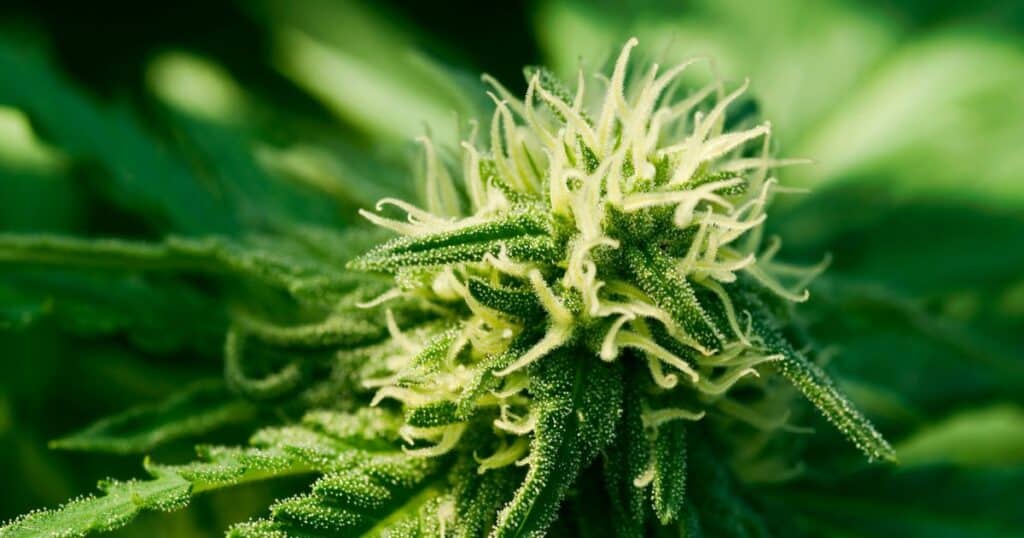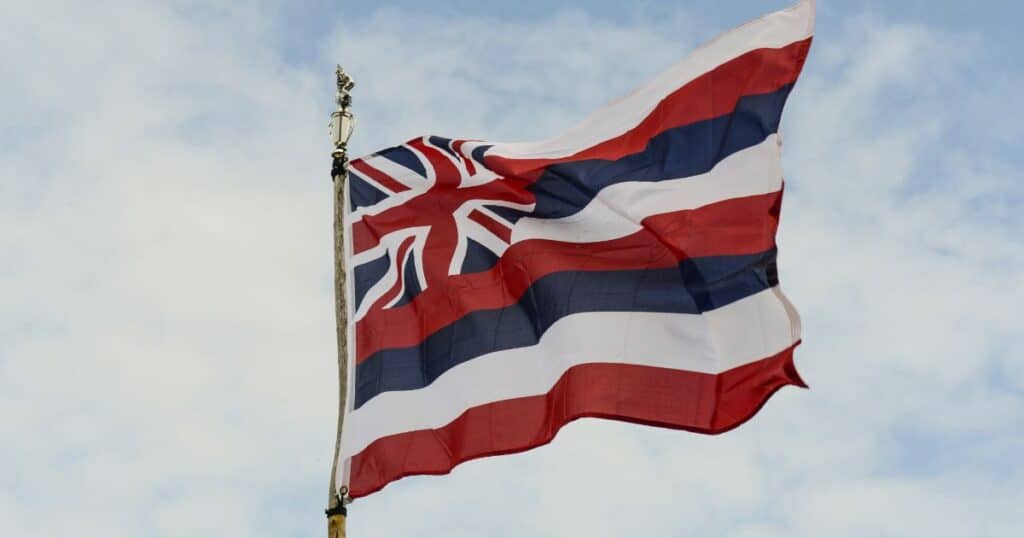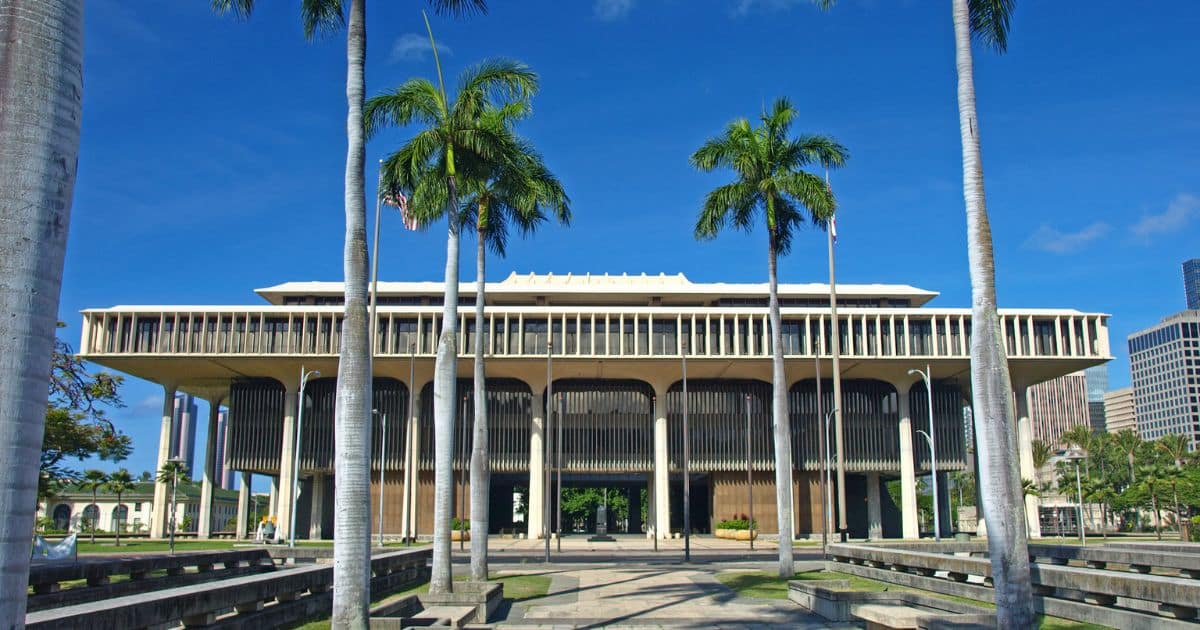The tropical haven of Hawaii is no stranger to the debate surrounding recreational cannabis. This year, the archipelago state is making headlines yet again with the filing of cannabis legalization bills, drafted by the State Attorney General as first reported by Marijuana Moment.
This move could significantly reimagine Hawaii’s legal stance on cannabis. As proponents push for change, advocates closely scrutinize the introduced bills, highlighting imperative revisions they believe are essential to protect the rights of everyday Hawaiians.

At the heart of this legislative chronicle are bills House Bill 2600 (HB 2600), led by Rep. David Tarnas (D), and its Senate counterpart, Senate Bill 3335 (SB 3335), led by Sen. Jarrett Keohokalole (D).
Drafted under the guidance of Hawaii’s Attorney General Anne Lopez and her staff, these reform proposals are aimed at legalizing adult-use cannabis by individuals over the age of 21 starting January 1st, 2026; the bills offer a future where possession, cultivation, and retail sales of cannabis are not only normalized but also regulated by a dedicated government agency – the Hawaii Cannabis Authority.
These measures paint a broad canvas, designed to allow for the personal possession of up to one ounce of marijuana and five grams of concentrates, with the inclusion of a provision for home cultivation of up to six plants, clearly marking a significant departure from the current legal status of cannabis in the state. As with any legislative stride, the bills have rallied significant support, with several lawmakers and stakeholders backing the initiative.
The Voice of Advocates
Although there is ink and paper that validate the growing bills… a chorus of skepticism surrounds them, resonating loudest in the chambers of cannabis advocacy groups. The National Organization for the Reform of Marijuana Laws (NORML) and the Marijuana Policy Project have not minced words regarding their apprehensions. Their concern lies in the detailed stitching of the proposed laws – a fabric shaped by a perceived overemphasis on law enforcement and the absence of vital clauses like the automatic expungement of past cannabis convictions.
“Generally speaking, the bill provides a sound floorplan for adult-use legalization but erects a structure that is still far too punitive in its approach,” Nikos Leverenz, of the Drug Policy Forum of Hawai’i and the Hawai’i Health and Harm Reduction Center, told Marijuana Moment. “Placing a velvet glove of legalization on law enforcement’s iron hand is not what is called for.”
Advocates are particularly wary of what they view as new avenues for punitive measures against minors. They assert that leveraging criminal penalties for cannabis possession by the youth contradicts the spirit of legalization and is an overly aggressive response to an otherwise innocuous activity.
Moreover, the proposed legislation has been criticized for criminalizing the mere odor of cannabis, a provision that could potentially open the floodgates for unwarranted searches and seizures.
Karen O’Keefe, director of state policies for Marijuana Policy Project, said the bills “might actually do more harm than good to the cause of cannabis justice” if they are approved in their current form.
“Legalization should mean fewer cannabis arrests, not more,” O’Keefe told Marijuana Moment, arguing that the policy change “should include the clearing of criminal records for cannabis and reinvestment in hard hit communities. Instead, these bills ramp up cannabis-specific law enforcement and impose jail time for innocuous behavior that harms no one, including driving long after impairment wears off and having a previously opened jar of edibles in the passenger area of a car.”
Legislation Under the Microscope: What’s in the Fine Print
Diving into the specifics of the legislative texts illuminates the complexity of the proposed regulatory framework. The bills incorporate provisions around the possession, cultivation, and sale of cannabis, outlining the permissible quantities and the logistical workings of the industry’s operation. However, a closer examination reveals intricate mandates and prohibitions that have sparked debate.
The imposition of criminal charges for specific acts, such as the possession of recreational cannabis outside sealed packaging in vehicles, underlines a punitive tone that dissenting voices find disconcerting.
Such as imposing up to 30 days in jail for anyone who possesses a cannabis package that has ever been opened, loose cannabis, or any pipe in the passenger area of a vehicle.
Additionally, proposed penalties for non-compliance are viewed as excessive, potentially leading to situations where individuals, even those in alignment with most provisions, could inadvertently find themselves on the wrong side of the law.
A minor violation, such as cannabis plants being visible to neighbors, could result in jail time, according to the drafted bills.
You can find a full summary of the cannabis legalization bills provided by MPP here.
Taxation, Revenue, And No Expungments?
The economic cog of these bills rests on the cogency of the proposed tax structure. To balance the social and financial implications, policymakers have devised a tax model that includes a 10% retail tax on cannabis atop Hawaii’s existing 4% general excise tax. Revenue allocation is a multi-faceted endeavor earmarking returns for various domains, with a significant percentage directed toward social equity and public health.
Allocates 35% to regulation, 25% to a social equity fund, 15% to public health and education, 10% to a public safety special fund, 7.5% to a new cannabis law enforcement special fund, and 7.5% to a cannabis nuisance abatement fund.
Proponents argue that this financial blueprint could serve as a roadmap for progressive taxation policies, but critics maintain that the system may not be as equitable as it purports. Concerns about the potential impact on low-income communities and the effectiveness of revenue distribution continue to shadow the legislative journey.
Notably, the bills also do not include cannabis expungements but require a report on the advisability of expunging or sealing low-level offenses “without causing undue burden” by early 2027.
“Legalization should mean fewer cannabis arrests, not more,” O’Keefe told Marijuana Moment, arguing that the policy change “should include the clearing of criminal records for cannabis and reinvestment in hard hit communities. Instead, these bills ramp up cannabis-specific law enforcement and impose jail time for innocuous behavior that harms no one, including driving long after impairment wears off and having a previously opened jar of edibles in the passenger area of a car.”
In light of the divergence between the bills and the expectations of the advocacy community, the stage is set for a reevaluation of Hawaii’s approach to cannabis legalization. The calls for amendment are not a rejection of the bills per se, but rather a plea for a more inclusive and just regulatory landscape.
Advocates hypothesize that the true spirit of legalization lies in a framework that not only decriminalizes but also destigmatizes cannabis consumption, and addresses the social disparities created by decades of prohibition.
Reform, they argue, should be grounded in comprehensive measures that promote awareness, support impacted communities, and institute profound changes in law enforcement practices. The collective efforts to redefine the narrative around recreational cannabis in Hawaii must harmonize with the values of human rights, social justice, and the will of the people.
“While it’s past time Hawai’i end cannabis prohibition,” O’Keefe said, the legislature “needs to significantly revise the AG-drafted bills.”

As Hawaii moves towards a decision on the fate of cannabis legalization, the road ahead is paved with challenges and choices. The imminent choices will not only impact the daily lives of Hawaii’s residents but will resonate with the larger narrative of cannabis reform in the United States.
Once securely fastened, the new legislation’s bow lines will have far-reaching implications, carving a path that future cannabis policies may seek to emulate or avoid.
The current discourse underscores a pivotal moment in the history of cannabis in Hawaii, which demands a judicious approach guided by the principles of equity and justice. While the proposed bills are a testament to the progressive winds of change, they are also a snapshot of the intricate dance between social liberties, economic interests, and the intricate framework of legislation.
The ultimate litmus test for the success of Hawaii’s cannabis legalization endeavors will be how well the state navigates this delicate and complex terrain, forging a future that balances the scales of reform and responsibility.
Keep updated on all the latest news and updates in the Cannabis industry here at Beard Bros Pharms by signing up for our Friday Sesh Newsletter here. Always Dank and Never Spam!
- Chicago Police Department Revises Policy on Searches Based Solely on Marijuana Odor
- Ohio’s Senate Bill 56 Postponed, Leaving Details of Issue 2 Still Unresolved
- Sports Stars and Well Known Entertainers Join Forces Calling on Trump for Cannabis Reform
- Pinsky and the Brain: Bill White on His Journey to Consulting in Cannabis
- Delaware’s Recreational Cannabis Market Finally Set to Launch After Years of Challenges
- Excise Tax Increase to 19% and Its Impact on California Retailers














